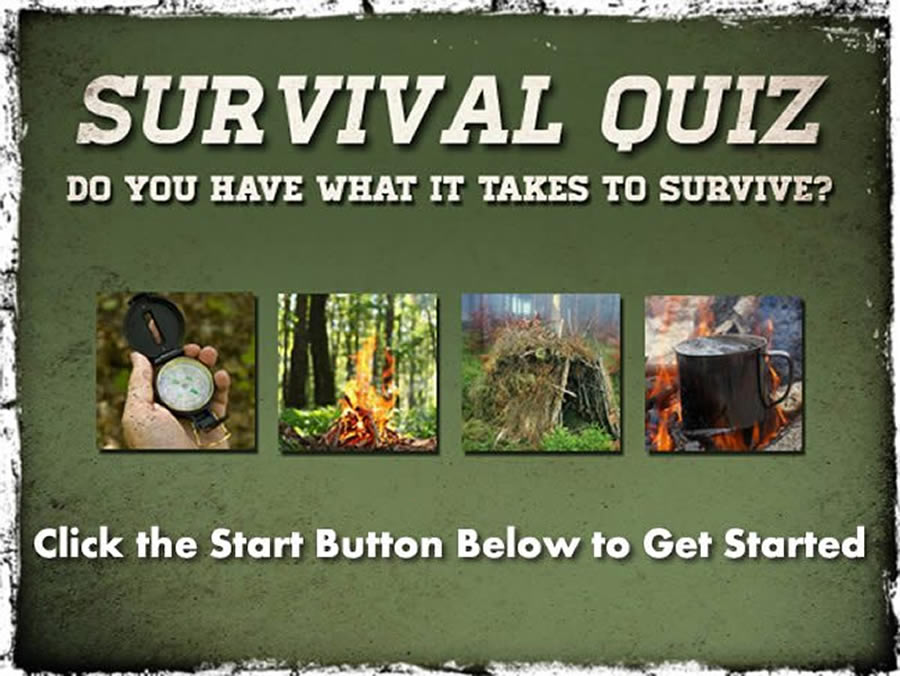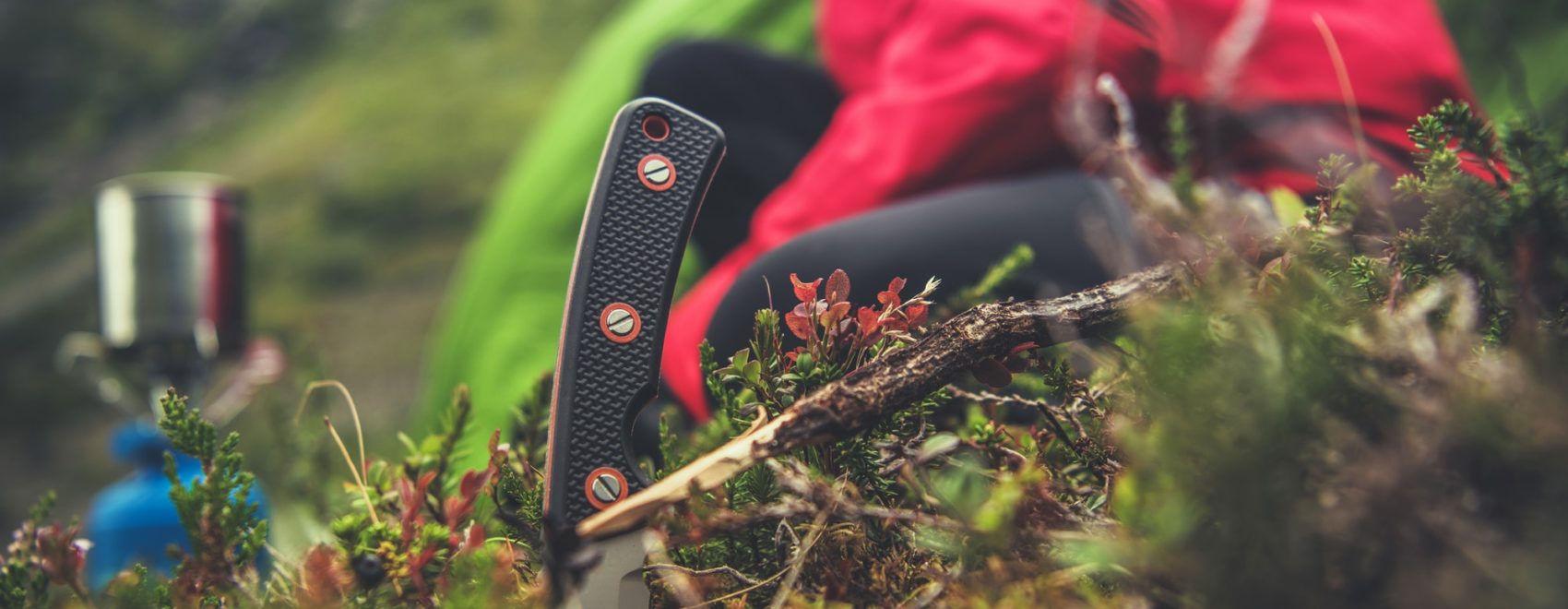
Results
You may want to bone up on your survival skills. Luckily, you’re in the best place to do this!
#1. Which symptom determines if you are experiencing SEVERE dehydration?
Dry mouth and a rapid heartbeat is a sign for moderate dehydration. Vomiting and diarrhea is a strong indication for severe dehydration.
#2. Why should you melt snow or ice before drinking it?
Eating frozen snow and ice will reduce your core body temperature and can lead to dehydration.
#3. Why should you try to avoid sleeping directly on the ground?
Sleeping on the ground can lead to loss of body heat. You’ll retain more warmth by piling grass or pine needles on the ground to sleep on.
#4. If your feet stay wet for a prolonged period, you can develop:
Trench foot is a medical condition caused by prolonged exposure of the feet to damp, unsanitary, and cold conditions. It was also the number three injury, behind bullets and shrapnel, in both world wars, that disabled soldiers.
#5. What internal temperature is required to break down bacteria cells in meat?
Bacteria begins to break down at 160° Fahrenheit.
#6. Which crucial need you should first address if you are lost in the woods during a thunderstorm?
Shelter from the elements is your first priority. Hypothermia can set in within 20 minutes, shelter will keep you from losing more heat and allow you to raise your body temperature. Once your shelter has been established you can focus on water, then food.
#7. What is a bug out bag used for?
Bug out bags are used to store survival gear and equipment that will help you evacuate your home and “bug out” to a predetermined, or open ended location.
#8. It’s a good idea to build your shelter near what?
Staying near a source of water is a good idea when building a shelter. You should avoid natural hazards like cliffs and dry river beds.
#9. What’s the LEAST important survival tool for a novice in a jungle scenario?
The ability to shelter yourself from the elements, start a fire, clear brush, defend yourself, and provide clean drinking water are the most important tools. A compass is a very important tool, however if you are lost, the most recommended strategy is to shelter in place for those who will be looking for you.
#10. On Average, How Many Days Can You Survive Without Water?
The human body begins severe dehydration, that leads to death in 3 days.
#11. In a survival scenario, you should avoid eating insects that ____.
Brightly colored, or strong smelling insects are a clear warning sign for you to avoid, many are poisonous.
#12. How long can a healthy human go without food as long as they have water?
A healthy person, properly hydrated, can last up to 8 weeks without food. This is not to say that they will be able to operate as they normally would with food. The starvation process will leave you without energy and unable to perform basic survival tasks.



